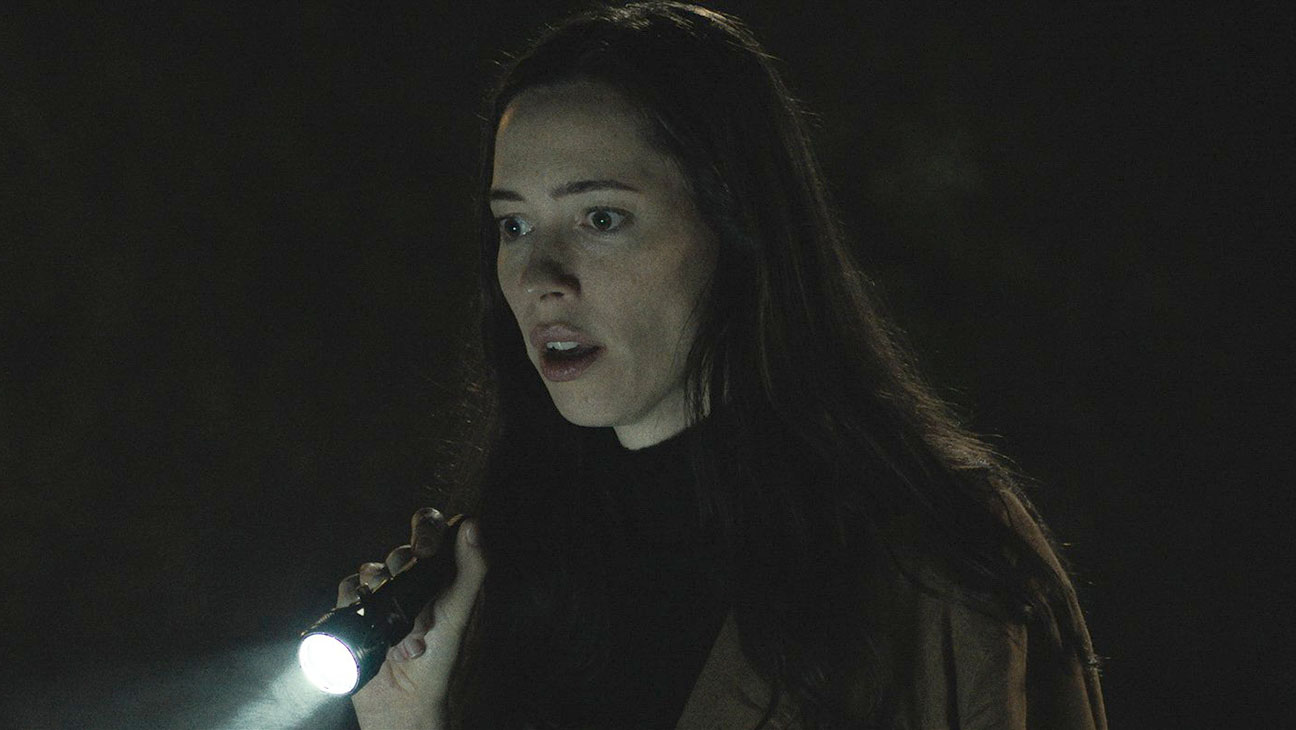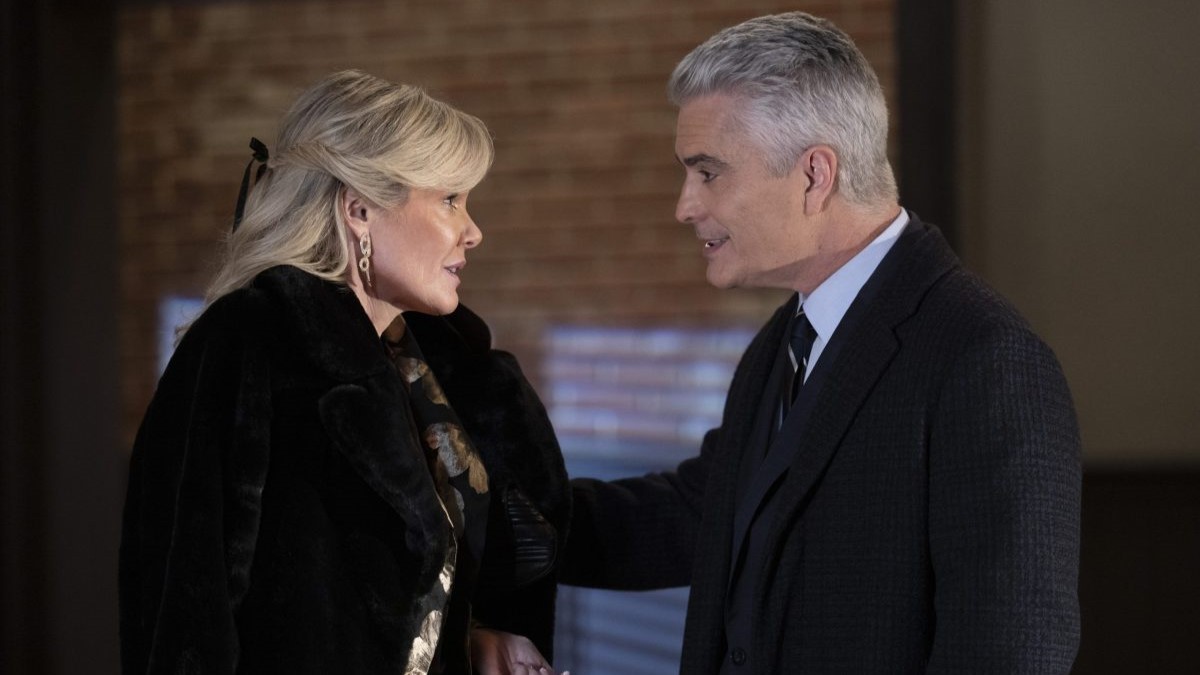What to Watch Verdict
'The Night House' is a tempered approach to horror that's never reliant on jump scares and yet remains so enthrallingly devastating as Rebecca Hall navigates the murkiest depths of mental health as a horror metaphor.
Pros
- +
🏚️ Rebecca Hall opens herself to sadness.
- +
🏚️ Love the "monster" formulation.
- +
🏚️ Chilling in every sense of the word.
Cons
- -
🏚️ The ending feels a tad underserved.
- -
🏚️ Possible slow-burn issues for some.
The ease with which The Night House demystifies the rawness of grief and dug-in claws of mental despair are soberly emblematic. Writers Ben Collins and Luke Piotrowski generate a horror story that’s never shy around stigmatic windows into death and suicide. David Bruckner’s directorial style has tamed cryptic creatures in The Ritual and faced limb-snapping gore in Southbound, which The Night House doesn’t consider—the director’s range extrapolates the chilling intimacy of a housebound haunted character. I adore how architecture becomes possessed (so to speak) by secrets and the demons they spawn, as thought-based prisons simulate a hidden landscape that erodes under the weight of being outwardly not alright. To label The Night House compelling and caustic is just the start.
Rebecca Hall stars as the widowed Beth, left grieving after their husband Owen (Evan Jonigkeit) shoots himself in the head while adrift on lake waters. Beth is experiencing the indescribably hollow period of loss where everything seems surreal; the house Owen built is now an empty reminder. She medicates with brandy most nights and begins sleepwalking as Owen once did—then she hears Owen’s voice and feels a nightly presence. Clues start to inspire hope that Owen has returned, but further interactions cause Beth to investigate her partner’s private affairs and spiral as Owen may have been leading a double-life behind closed doors.
The Night House is a frightening character dissection that becomes a posthumous reassessment of an entire existence on Earth. Beth questions Owen’s behaviors as a single thread begins to unravel—one suspect photo on his smartphone camera roll—while her supportive guardian friend Claire (Sarah Goldberg) or compassionate neighbor Mel (Vondie Curtis-Hal) urges Beth to stop dwelling on self-sabotaging punishment. It’s a paralyzing thought; what if the last fourteen years were a romantic farce or throwaway fabrication? Worse, what if she infected Owen with negative emotions? As shadowy figures flicker in full-size windows or effigial statues (bound and stabbed) replicate totems in occult literature found amidst Owen’s belongings, Beth has no choice but to chase a single spark that upholds her melancholic madness in the face of trauma.
Bruckner is able to conjure classical representations of spirits that contest Beth’s conceptualization of reality, which is a nifty magic trick. Voices whisper instructions to Beth over radio soundwaves or shapes built into Owen’s carpentry outline the illusion of a man via load-bearing pillars glimpsed at just the right angular reveal. The house comes alive as Beth thumbs through Owen’s blueprint designs, unlocking this unconscious dreamworld where cinematography blasts rosy reddened overlays to signify a parallel realm. Beth is essentially fabricating another universe where she can reside, and pain is a constant factor. Closure and justice become equal antagonists, as the film’s highest plateaus of suspense occur when Beth drunkenly interrogates an apparition because last resorts are natural—the voice she hears, the depression she suppresses, cannot be outrun.
Sound design becomes a representation of broadcast signal influences, of guiding messages heard by an individual, and of some exquisitely invasive spookiness while "Owen" keeps chipping away at Beth’s well-being.
As The Night House explores tragedy and reflexive somberness through Rebecca Hall’s slam-dunk performance, “the voices” become something she must combat. Collins and Piotrowski aren’t underselling metaphors as Hall’s exasperation is worn without any hope of augmented concealers. The way in which Hall allows Beth to speak so freely about Owen’s actions and her character’s prior brush with death never softens; there’s an authenticity to every one of Beth’s intoxicated breakdowns as she yelps at air where Owen’s soul could stand. It’s so vulnerable and exposed, in a way that understands Beth’s teetering on a blade’s edge and how that’s a common state of emotional decay. The unexpected confrontations, the barstool confessions, the powerlessness Beth feels as Owen villainizes from beyond the grave—Hall’s fragility makes her house-of-cards exterior all the more impactful as the film’s ghost story blends with serial supernatural crimes.
Understand, The Night House isn’t The Dark And The Wicked in terms of apparitional terrors—but jump scares aren’t the only weapon in horror’s arsenal. David Bruckner basks under the poetic allure of moonlight for a genre experience that dedicates its fear to commonplace mental anguish. Rebecca Hall is brilliant, and there’s such uniqueness to ultimate evils presenting themselves using banisters, furniture, and hallway curvatures that emphasize optical deception over hellraising demonic imagery. It’s not impervious to a few pacing issues, but those qualms are overshadowed by mental health horror admissions that are as resonant as they are ruinous. Who needs to create fantastical creatures when everyday life is filled with beasts we already struggle to acknowledge? Even better when a film so thoroughly and honestly addresses what society itself refuses to confront.
Matt Donato is a Rotten Tomatoes approved film critic who stays up too late typing words for What To Watch, IGN, Paste, Bloody Disgusting, Fangoria and countless other publications. He is a member of Critics Choice and co-hosts a weekly livestream with Perri Nemiroff called the Merri Hour. You probably shouldn't feed him after midnight, just to be safe.












